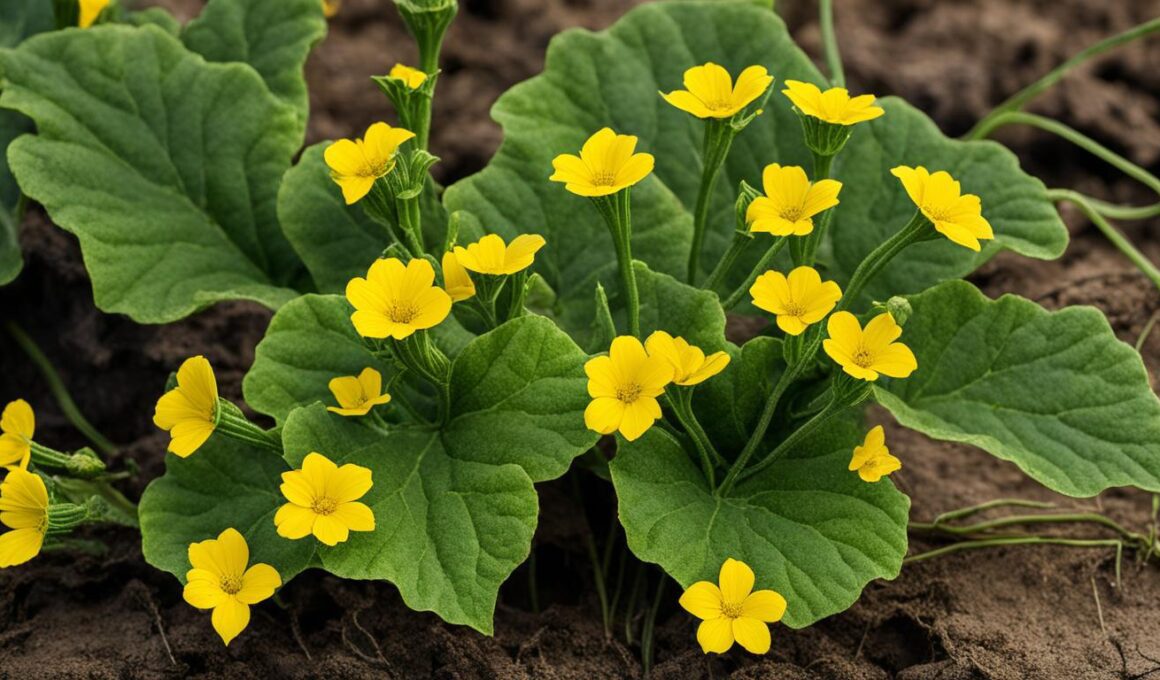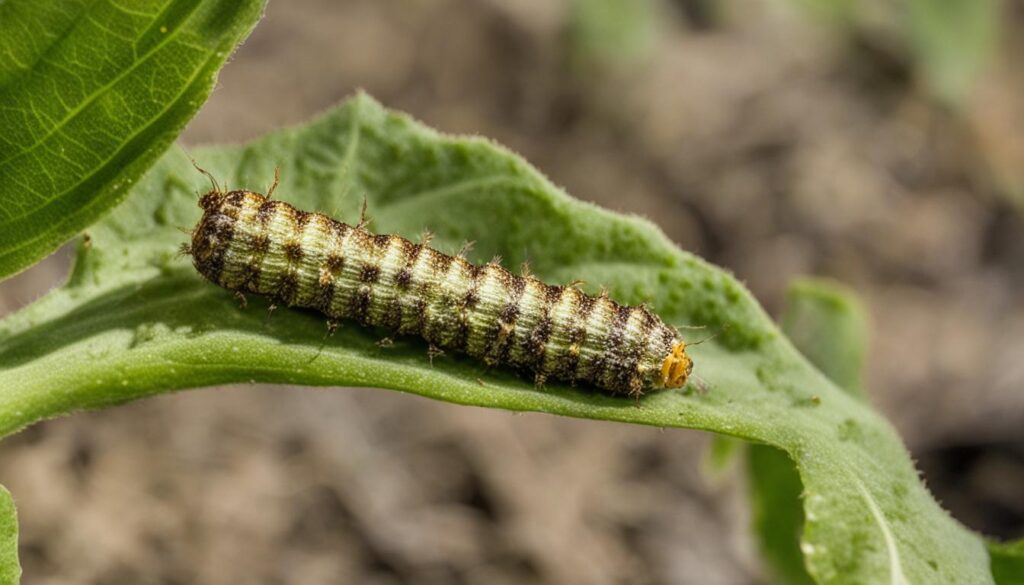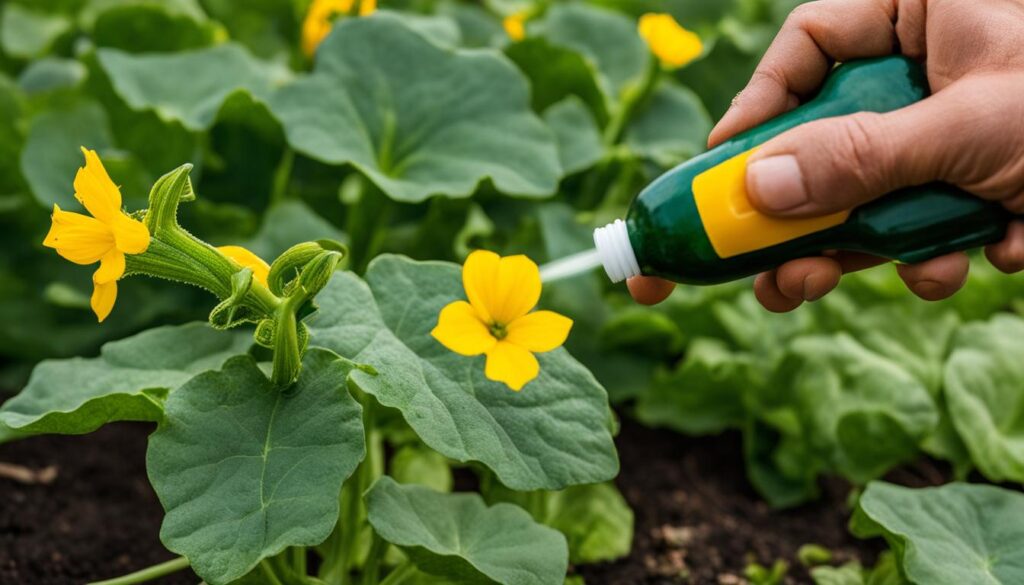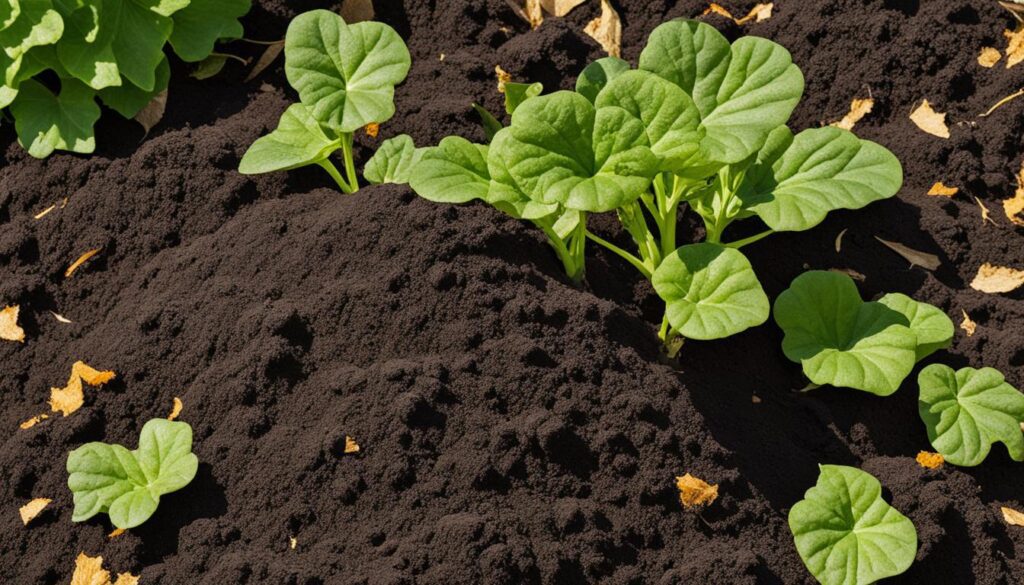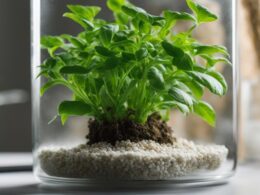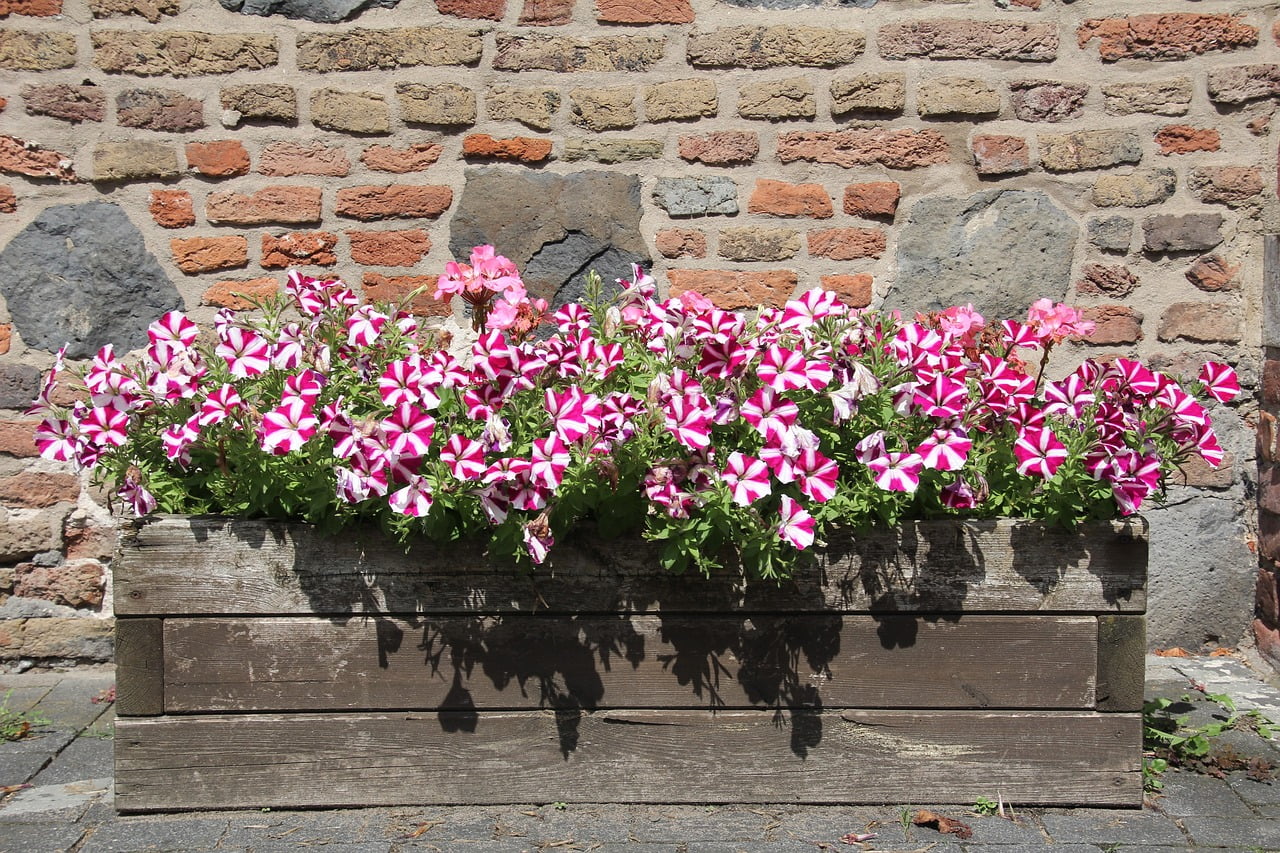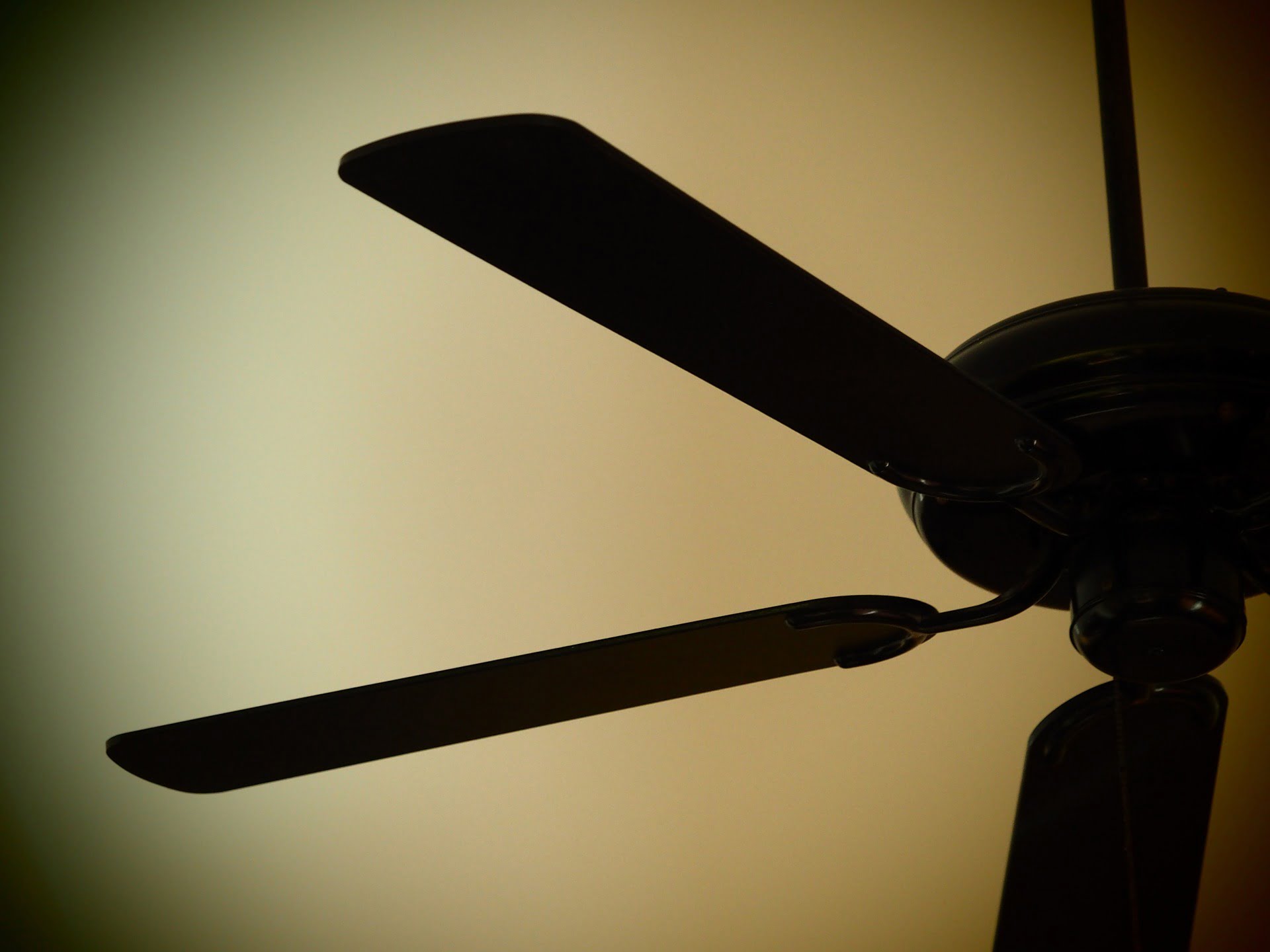Squash vine borers can wreak havoc on your squash plants, causing wilting, damage, and even plant death. But fear not, because we have the ultimate guide to help you stop squash borers in their tracks. In this article, we will share effective strategies and organic methods to prevent or eliminate squash vine borers and protect your precious squash plants.
Key Takeaways:
- Identify and understand the behavior of squash vine borers to effectively combat them.
- Use Bt spray, an organic and effective method, to control squash vine borers.
- Mulching can be a preventive measure by deterring adult squash vine borer moths.
- Recognize the signs of squash vine borer damage and perform plant surgery if needed.
- Consider delayed planting and succession planting to minimize the impact of squash vine borers.
What are Squash Vine Borers?
Squash vine borers are the larvae of an orange and black moth. These diurnal moths are active during the day and lay their eggs on squash plants. Once the eggs hatch, the larvae burrow into the stems of the plants and feed on the internal tissue, eventually causing plant death. The adult squash vine borer moths can lay up to 150 eggs in a single season, making them a significant threat to squash plants.
The larvae of squash vine borers are particularly destructive because they feed directly on the vascular tissue of the plant. As they tunnel through the stem, they cut off the flow of water and nutrients, leading to wilting and eventual plant death. The presence of squash vine borer larvae is often accompanied by sawdust-like frass near the base of the stem, indicating their activity.
“Squash vine borers are the larvae of an orange and black moth. These diurnal moths lay their eggs on squash plants and the larvae tunnel through the stems, causing plant death.”
Identifying squash vine borers early is crucial for effective control. Regular inspection of squash plants, especially the stems, can help detect the presence of larvae before significant damage occurs. By being vigilant and taking proactive measures, you can protect your squash plants from the destructive effects of squash vine borers.
Key Points:
- Squash vine borers are the larvae of an orange and black moth.
- These diurnal moths lay their eggs on squash plants, and the resulting larvae tunnel through the stems.
- The larvae feed on the vascular tissue, causing wilting and eventual plant death.
- Early identification of squash vine borers is essential for effective control.
How to Prevent Squash Vine Borers with Bt Spray
One effective strategy to prevent squash vine borers is by using Bt spray, also known as Bacillus thuringiensis. Bt spray is an organic and environmentally-friendly solution that specifically targets the larvae of squash vine borers. When applied to the squash plant, Bt spray releases toxins that are ingested by the larvae, ultimately killing them.
To use Bt spray effectively, it is recommended to apply it twice per week, especially during periods of active squash vine borer activity. Additionally, it is important to reapply Bt spray after rainstorms to ensure continuous protection. When applying Bt spray, make sure to cover all parts of the squash plant, including the leaves, stems, and base, as the larvae can be found in various areas.
Benefits of Using Bt Spray:
- Organic and safe for beneficial insects and wildlife
- Targets and kills squash vine borer larvae specifically
- Easy to apply and does not require extensive equipment or expertise
- Provides a proactive approach to prevent squash vine borer infestation
“Bt spray is a valuable tool for organic gardeners looking to protect their squash plants from squash vine borers. Its targeted approach ensures effective control while minimizing harm to beneficial insects and the environment.” – Organic Gardening Magazine
Incorporating Bt spray into your squash plant care routine can significantly reduce the risk of squash vine borer damage. By utilizing this organic method, you can enjoy healthy squash plants and bountiful harvests without the worry of squash vine borer infestation.
Mulching for Squash Plant Protection
Mulching is a simple yet effective technique that can help protect your squash plants from the destructive squash vine borers. By applying a layer of organic mulch around the stems of your squash plants, you create a physical barrier that deters adult squash vine borer moths from laying their eggs. Mulching not only helps prevent squash vine borer infestation but also offers other benefits to your plants.
When you mulch your squash plants, it helps regulate soil temperature, conserves moisture, and suppresses weeds. The mulch acts as an insulating layer, keeping the soil cool during hot summer months and protecting the roots from heat stress. Additionally, mulching helps retain moisture in the soil, reducing the need for frequent watering and maintaining optimal hydration for your squash plants. The mulch also prevents weed growth, minimizing competition for nutrients and water.
Types of Mulch for Squash Plants
There are several types of mulch you can use to protect your squash plants from squash vine borers. Organic mulches such as straw, shredded leaves, or compost are excellent choices as they break down over time, enriching the soil with nutrients. These mulches also create a favorable environment for beneficial soil organisms that contribute to plant health.
When applying mulch, make sure to keep it a few inches away from the main stem of the squash plant to prevent moisture buildup and potential stem rot. Spread the mulch in a layer about 2-3 inches thick, covering the area around the stem and extending to the drip line of the plant. Replenish the mulch as needed to maintain the proper thickness throughout the growing season.
Remember, mulching is a valuable practice for protecting your squash plants from squash vine borers. It not only deters adult moths but also provides essential benefits such as regulating soil temperature, conserving moisture, and suppressing weeds.
By implementing mulching as part of your squash plant protection strategy, you can significantly reduce the risk of squash vine borer infestation and ensure healthy, thriving plants. Combined with other organic methods like Bt spray and delayed planting, mulching adds an extra layer of defense against these destructive pests. Take proactive measures to safeguard your squash plants and enjoy a bountiful harvest.
Squash Vine Borer Damage and Plant Surgery: What You Need to Know
If you notice sudden wilting of your squash plants or holes with sawdust-like material at the base of the stem, chances are you’re dealing with squash vine borer damage. These destructive pests can wreak havoc on your precious squash plants, but there are steps you can take to save them.
“Squash vine borer damage is characterized by sudden wilting and holes with frass, or sawdust-like material, at the stem base.”
If you catch the damage early, performing plant surgery can help remove the squash vine borer larvae and potentially save the plant. Start by making a small incision in the stem near the damaged area. Carefully locate and remove the larvae using tweezers or a small knife. Once the larvae is removed, bury the stem with soil and mulch to promote healing and protect the plant from further infestation.
Signs of Squash Vine Borer Damage:
- Sudden wilting of the plant
- Holes with frass at the base of the stem
“Performing plant surgery involves making a small incision in the stem, locating and removing the squash vine borer larvae, and burying the stem with soil and mulch.”
It’s important to note that once a plant is severely damaged by squash vine borers, it may be difficult to save. However, by remaining vigilant and taking immediate action when you spot the signs of damage, you can increase the chances of saving your squash plants and enjoying a bountiful harvest.
Delayed Planting and Succession Planting
One effective strategy to prevent squash vine borers is delayed planting. By waiting until after mid-July to plant your squash, you can avoid the peak season for adult moths to lay their eggs. This reduces the risk of infestation and helps protect your squash plants from squash vine borer damage. Delayed planting can be particularly beneficial if you have experienced recurring squash vine borer issues in the past.
Another approach to ensure a continuous supply of squash while minimizing the impact of squash vine borers is succession planting. Succession planting involves planting new squash every four weeks throughout the growing season. This staggered planting schedule ensures that if one plant becomes infested, you will have younger plants that have not yet been attacked by squash vine borers. This method acts as a backup and increases your chances of a successful harvest.
Benefits of Delayed Planting and Succession Planting:
- Reduces the risk of squash vine borer infestation
- Minimizes the impact of squash vine borer damage
- Ensures a continuous supply of squash
- Increases the chances of a successful harvest
By implementing delayed planting and succession planting in your garden, you can proactively manage squash vine borer risks and increase the likelihood of a bountiful squash harvest. These strategies work synergistically with other organic methods, such as Bt spray and mulching, to create a comprehensive approach to squash vine borer prevention.
Next, we will explore another natural method to control squash vine borers: introducing parasitic wasps as natural predators.
Introducing Parasitic Wasps as Natural Predators
One effective strategy for controlling squash vine borers is to introduce parasitic wasps into your garden. These tiny insects are natural predators of pests, including squash vine borers, and can help keep their population in check. By creating a diverse ecosystem in your garden, you can encourage the presence of these beneficial insects.
One way to attract parasitic wasps is by planting nectar and pollen-rich flowers and herbs. These plants provide a valuable food source for the adult wasps, helping to sustain their population. Some recommended plants include marigolds, zinnias, dill, fennel, and yarrow. By incorporating these beneficial plants into your garden, you can create an environment that is attractive to parasitic wasps.
“Parasitic wasps are highly effective natural predators of squash vine borers. By introducing these beneficial insects to your garden, you can reduce the damage caused by these destructive pests.”
When introducing parasitic wasps, it’s important to avoid the use of broad-spectrum insecticides or pesticides, as these can harm the beneficial insects. Instead, opt for organic pest control methods, such as Bt spray or neem oil, which target specific pests while minimizing harm to beneficial insects like parasitic wasps.
Benefits of Introducing Parasitic Wasps
- Effective pest control: The presence of parasitic wasps can significantly reduce the population of squash vine borers, helping to protect your squash plants.
- Environmentally friendly: Introducing natural predators like parasitic wasps is a sustainable and chemical-free approach to pest control.
- Cost-effective: Once established, parasitic wasps can continue to provide long-term pest control without the need for additional treatments or interventions.
- Promotes biodiversity: Creating a diverse ecosystem in your garden benefits both plants and wildlife, enhancing overall garden health and resilience.
By harnessing the power of nature’s pest control methods, you can effectively manage squash vine borers while promoting a balanced and thriving garden. Introducing parasitic wasps as natural predators is just one piece of the puzzle in your overall squash vine borer prevention strategy.
Are the Strategies to Stop Squash Borers Effective for Getting Rid of Squash Vine Borers?
Yes, there are effective strategies to get rid of squash vine borer. Some popular methods include using row covers to protect squash plants, handpicking and destroying eggs, and implementing crop rotation to reduce their population. Additionally, applying beneficial nematodes and using insecticides can also help control squash vine borer infestations.
Conclusion
To effectively prevent squash vine borers and safeguard your squash plants, it is crucial to implement a combination of strategies. By employing these effective methods, you can minimize the damage caused by these destructive pests and ensure a successful harvest.
Firstly, using Bt spray, also known as Bacillus thuringiensis, is highly recommended. This organic solution targets the larvae of squash vine borers, effectively controlling their population. Apply Bt spray twice a week, especially after rainstorms, to protect your plants.
In addition to Bt spray, employing mulching techniques can help deter adult squash vine borer moths from laying eggs. By covering the main stem of the squash plants with mulch, you create an obstacle that prevents the moths from accessing the plants. Mulching also enables vining and crawling squash varieties to develop new roots along their stems, allowing the plants to thrive even if they have been infected by squash vine borers.
Delayed planting and succession planting are two strategies that can significantly reduce the risk of squash vine borer infestation. By delaying the planting of squash until after mid-July, you can avoid the peak season for egg-laying by adult moths. Succession planting, on the other hand, involves planting new squash every four weeks, providing a continuous supply of produce and acting as a backup if one plant becomes infested.
Lastly, introducing natural predators, such as parasitic wasps, can further control squash vine borer populations. These beneficial insects prey on the pests and help maintain a balanced ecosystem in your garden. Attract parasitic wasps by planting nectar and pollen-rich flowers and herbs.
By combining these effective strategies of squash vine borer prevention, you can ensure the health and productivity of your squash plants, leading to a bountiful harvest and a thriving garden.
FAQ
What are squash vine borers?
Squash vine borers are the larvae of an orange and black moth that lay their eggs on squash plants. The larvae hatch and eat the squash plant’s stem, causing plant death.
How can I prevent squash vine borers with Bt spray?
Bt spray, or Bacillus thuringiensis, is an organic method to control squash vine borers. It can be applied to all parts of the squash plant and is effective in killing the larvae. Spray twice per week and after rainstorms.
How does mulching protect squash plants from vine borers?
Mulching the stems of squash plants deters adult squash vine borer moths from laying eggs. It also helps vining and crawling squash varieties set new roots along their stems, supporting new growth even if infected.
How do I recognize squash vine borer damage and perform plant surgery?
Squash vine borer damage is characterized by sudden wilting and holes at the stem base. If caught early, plant surgery involves making an incision, locating and removing the larvae, and burying the stem with soil and mulch.
How can delayed planting and succession planting help prevent squash vine borers?
Delaying squash planting until after mid-July avoids the peak season for moths to lay eggs. Succession planting provides a continuous supply of produce and acts as a backup if one plant is infested.
Can introducing parasitic wasps help control squash vine borers?
Yes, parasitic wasps are natural predators of pests, including squash vine borers. Planting nectar and pollen-rich flowers and herbs can attract them to your garden and create a diverse ecosystem that naturally controls pests.





